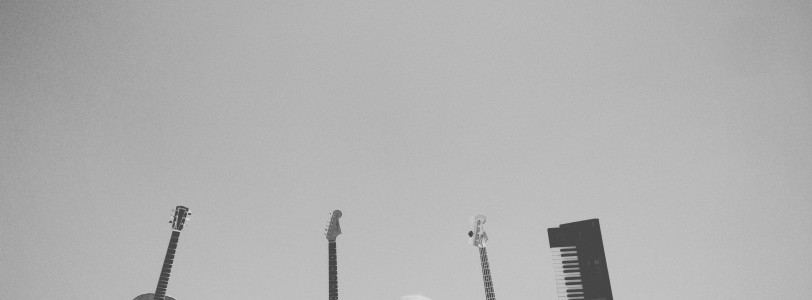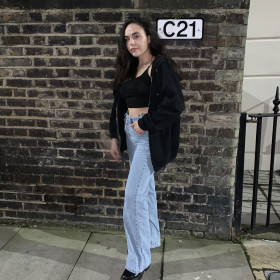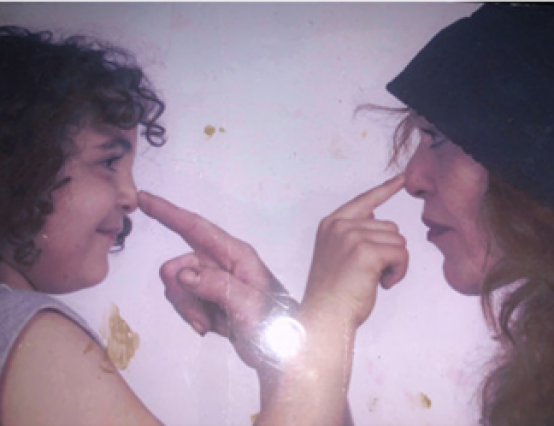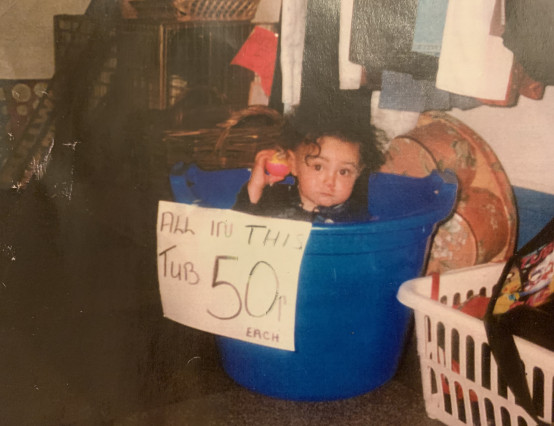As a child, singing was natural, free of any expectation. At times, I didn't even know I was singing until someone would point it out to me. Singing to tracks that would unexpectedly play in the shops, in between school hours, and during those car rides home.
In 2019, I decided to go against any worries I had about studying for a stable and steady job. I contemplated psychology but thought that what I actually enjoyed doing day to day would just expand the love I already had for it.
So, I signed up for it, and I am studying music at university. Like everything, it comes and goes in waves. Some days it feels like some growth is happening, and other times, it’s like I am back in school.
The expectation of creativity?
Currently, I am in my second year at university, and although I have bursts of joy in unpredictable moments, having coffee with someone who makes me laugh or singing a song in a space where I feel able, there are moments of, “why am I even here”.
I try not to think about why I am at university too much and unpack every pro and con, but somehow, I find myself critiquing each social group and social stigma, narrating my reality show in my head. It may be the therapist in me, but it can be exhausting. After the pandemic, the way that I present myself at university is much more authentic. In my first year, the energy that I carried to give a good first impression to each passer-by is now something I laugh about. At the time, that was the priority; feeling accepted by new people and potential collaborators felt important.
As I reach the middle of my second year, everyone around me seems so excited about the next gig coming up or the next collaboration that’s in process. It feels like I’m an outsider congratulating what they are doing, and then I go back home to do my writing. Maybe music on stage isn’t the thing I want to do, which makes my current student life feel a little disconnected.
We had a workshop recently where we sat down in small groups with a teacher and spoke about who we are as an artist. The assignment was to write a manifesto and break down our personal artistic qualities. I suddenly found myself in a group therapy session, where we were discussing our strengths and weaknesses as musicians. I was looking at the board, reading the questions, and processing how I am still working towards academic criteria in a creative setting. Going to university is not something I regret, but when we have fixed approaches like, “rate yourself 1-10 on how good of a creative you are”, it does make you question whether creative studying encourages a narrow way of thinking.
Speaking to my mum, who studied film at university, her abstract way of creating a raw documentary was appreciated. When put in groups, she mentioned that collaborating meant compromise. At times, the end product was nothing like the original idea. That always stuck with me. Those original concepts that were once your own have now been shaped to fit a high grade, or please your tutor because you have done a “really good job”.
I find that at university, I will always opt to do things on my own, which has its benefits and its downfalls.
Finding balance
On reflection, doing what you love doesn’t require three years of studying for you to get “better” or even learn more. In recent years, whilst being at University, I have joined Wired4Music, Sound Connections and VoiceMag to keep my creative practices going in an informal and supportive setting. All of these organisations provide creative access and networking opportunities for young people, which seems to lead to much more growth. There isn’t any pressure, and it allows room to do the things that you love without a pass or fail mark attached.
I am still glad that I am studying music at university, but I need to remind myself that my intentions for going do not need to match my peers. Having these organisations that facilitate creative opportunities, whilst going to university, has become a good balance for me. It made me question how many other people are aware there are these other routes to explore. We are conditioned to think and act in a linear fashion, with little knowledge about how much flexibility can be in place, in creativity, and in general life.
There is a choice, and other avenues are possible. In recognising the larger impact that this will have on society, mental health will improve if young people are told that those final exams at school are not their defining factor. Young people collaborating and stimulating themselves in creative ways will work towards building a generation of confident people, aware of the choices that they have in the arts, who know that nothing needs to have a fixed approach.
.









Super interesting blog here Milli. I studied dance at Uni and I'll be honest, it broke my love for dance in a big way and it took me quite some time to get it back. I didn't dance see or do any dance at all for about 6months after I finished, I just needed a break.
Academic study is a lot about analysis, comparison and reflection, and I question the ways some Universities choose to include that in their programmes. Growth as an artist involves exploring the work of others, but sometimes academic study requires us to explore it in so much detail and with such a critical eye it's hard to enjoy it.